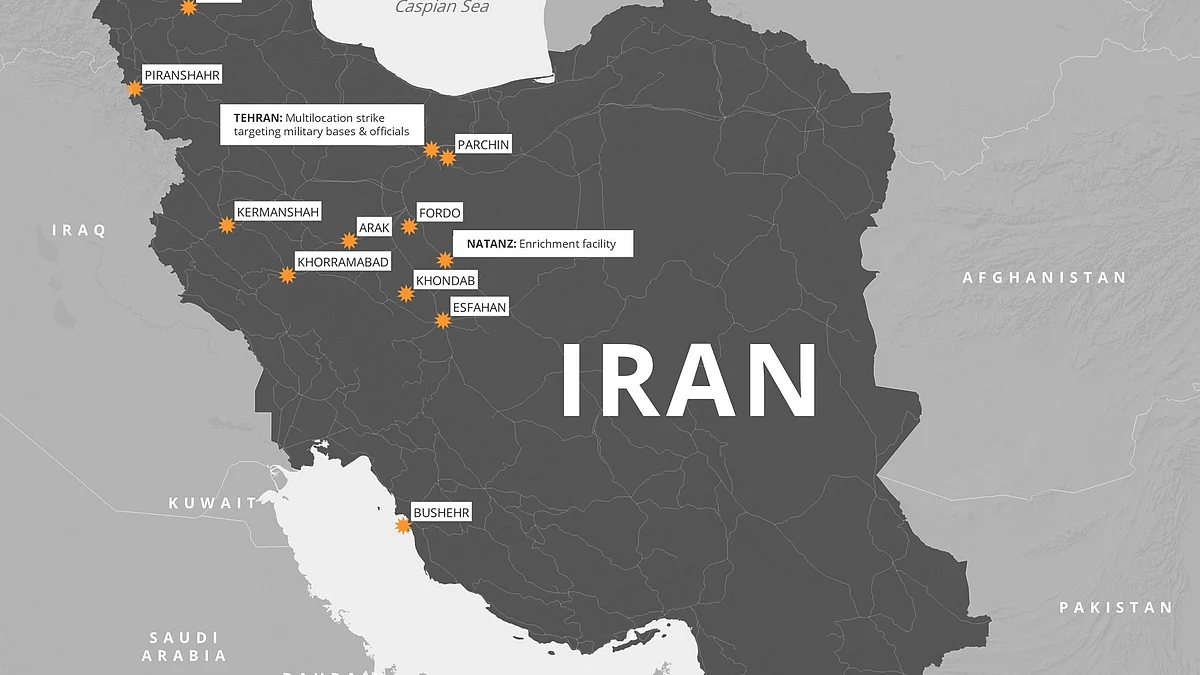Iran airspace closure: Double whammy for Indian aviation, especially Air India
Indian carriers face operational, financial, and logistical challenges as both Iranian and Pakistani airspace stay shut

The indefinite closure of Iranian airspace in the wake of Israeli military strikes on Iran’s nuclear and military installations has thrown international aviation into turmoil. For Indian carriers, particularly Air India, the crisis has presented a “double whammy” — compounding the ongoing restrictions on overflight rights through Pakistani airspace.
Iran’s decision, part of a broader regional fallout following Israel’s launch of 'Operation Rising Lion', has prompted Iraq and Jordan to close their skies as well, while Israel has suspended operations at its Ben Gurion Airport. These developments have disrupted major international air corridors, forcing airlines to take longer and costlier alternate routes.
A compounded airspace crisis
Indian aviation was already grappling with Pakistan’s decision to bar Indian-registered aircraft from using its airspace — a retaliatory move extended until at least 24 June owing to rising bilateral tensions. This has forced flights originating from northern India to divert over Central Asia or alternative pathways, significantly extending travel times and inflating fuel and crew costs. IndiGo, for instance, has reported extended durations of up to three hours on flights to destinations like Tashkent.
Now, with Iranian airspace also sealed, the situation has intensified. Key international routes from India to Europe, North America, and the Gulf — routes that traditionally bypassed Pakistan and traversed Iran and Iraq — are no longer viable. Flights are being rerouted over Saudi Arabia, Central Asia, and the Caucasus region, leading to added delays, passenger inconvenience, and increased financial burden.
Air India the worst hit
Among Indian carriers, Air India has borne the brunt of the disruption. The airline has had to reroute 11 international flights and return five to their departure airports mid-air. Notably, flight AI129 from Mumbai to London had to turn back following the sudden closure of Iranian airspace. Other impacted routes include flights to New York, Toronto, Frankfurt, Milan, Sharjah, and Vienna.
Air India has responded by activating emergency response protocols, offering full refunds, rescheduling options, and hotel accommodations for affected passengers. The airline has also set up support channels and travel advisories to manage the crisis.
Indian carriers and global airlines alike are implementing a range of operational measures to navigate this turbulent period. With key air corridors now closed, most affected flights are being rerouted through safer, albeit longer, paths over Central Asia and West Asia, resulting in increased travel durations and significantly higher operating costs.
In several cases, flights already airborne have been diverted to alternative international airports or instructed to return to their origin points to prioritise passenger safety. The reconfiguration of international flight paths has also led to congestion across these alternate routes, triggering inevitable delays and cancellations. To manage the resulting disruption, airlines are maintaining active communication with passengers via digital platforms and advisories, offering rescheduling options, full refunds, and logistical support, including accommodation where required.
The combined closure of Iranian, Iraqi, Jordanian, and Israeli airspace has interrupted a key nexus of east-west air traffic. While operations at Indian airports, including Delhi’s Indira Gandhi International Airport, continue largely unaffected, the ripple effect is evident in global aviation scheduling and connectivity.
Indian embassies in Iran and Israel have advised nationals to avoid non-essential travel and remain vigilant. As the regional security situation remains volatile, airlines are prioritising safety by steering clear of high-risk airspace.
Follow us on: Facebook, Twitter, Google News, Instagram
Join our official telegram channel (@nationalherald) and stay updated with the latest headlines
